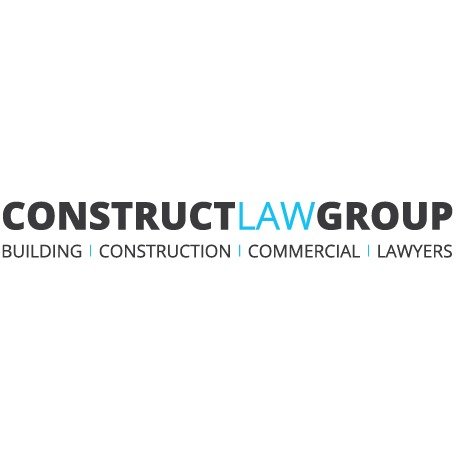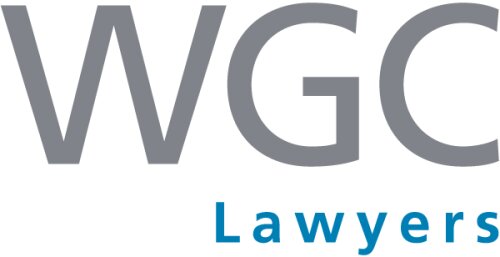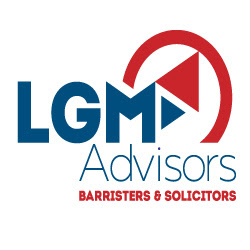Best Debt & Collection Lawyers in Australia
Share your needs with us, get contacted by law firms.
Free. Takes 2 min.
Or refine your search by selecting a city:
List of the best lawyers in Australia
About Debt & Collection Law in Australia
Debt and Collection law in Australia is designed to regulate the activities of debt recovery, ensuring both creditors and debtors are treated fairly. The law aims to offer protection to consumers from unlawful practices while allowing creditors to recover outstanding funds. It is governed by various legal instruments, including the National Consumer Credit Protection Act 2009, the Australian Consumer Law, and state-based legislation. The Australian Securities and Investments Commission (ASIC) monitors collection practices to ensure compliance and handle complaints related to unfair debt collection.
Why You May Need a Lawyer
There are numerous scenarios where seeking legal advice in debt and collection matters can be beneficial. If you are being harassed by debt collectors, encountering legal action due to unpaid debts, or if you suspect incorrect processing of your debt, a lawyer can help you understand your rights and options. Additionally, businesses might require legal counsel to set up debt collection processes, draft credit agreements, or handle defaults. Legal representation can ensure that any debt recovery action complies with Australian laws and help mediate disputes between creditors and debtors.
Local Laws Overview
Key aspects of Australian debt and collection laws include the regulation of debt collection practices, which are prohibited from misleading, deceptive, or unconscionable conduct. The Australian Consumer Law outlines the rights and obligations of both creditors and debtors. For instance, debtors have the right to request detailed information about their debt and negotiate payment terms. Each state may have additional laws; for instance, the status of limitations for debt collection varies, generally ranging from three to six years across states and territories.
Frequently Asked Questions
What should I do if a debt collector contacts me?
Record the contact, ask for written notice of your debt, and verify its legitimacy. You have the right to dispute the debt if you believe it’s incorrect.
Are there restrictions on when debt collectors can contact me?
Yes, debt collectors can contact you only during reasonable hours. They should avoid contact on national public holidays or outside the prescribed times (before 7.30 am or after 9 pm on weekdays, and after 9 pm on weekends).
What are my rights regarding repayment arrangements?
You can negotiate a repayment arrangement that suits your financial situation. It's beneficial to have any agreement documented in writing.
What is a statute of limitations in the context of debt collection?
The statute of limitations is the time limit creditors have to initiate legal proceedings to collect a debt. It typically ranges between three to six years, depending on the state or territory.
Can a debt become too old to collect?
Yes, debts become statute-barred when they exceed the legal period for collection action, meaning a creditor cannot enforce the debt through court proceedings.
Is it legal for a creditor to sell my debt?
Yes, creditors can sell your debt to a debt collection agency, which then owns the debt and can pursue repayment.
Can I get legal aid for a debt-related case?
Some legal aid services may cover debt-related issues, especially if you are eligible based on your financial situation.
What happens if I ignore a court order for a debt?
Ignoring court orders can lead to further legal action, including garnished wages, property seizure, or additional penalties.
Will my credit score be affected by unpaid debts?
Yes, unpaid debts and any default listings made by your creditors can impact your credit score, affecting your future borrowing ability.
What steps can I take if I feel harassed by a debt collector?
If a debt collector contravenes legal practices, you can report them to bodies such as ASIC or seek legal advice to explore your options.
Additional Resources
Consider contacting the Australian Securities and Investments Commission (ASIC) for more information about consumer rights and debt collection laws. The Australian Financial Complaints Authority (AFCA) offers dispute resolution services. Financial counseling services can provide advice on managing debt, available through organizations like the National Debt Helpline. Additionally, each state or territory may have consumer organizations and ombudsmen who can offer guidance.
Next Steps
If you need legal assistance in a debt and collection matter, start by gathering any relevant documents, such as notices from debt collectors, payment records, and correspondence. Consult with a qualified lawyer specializing in debt collection who can evaluate your situation and provide tailored advice. Many offer initial consultations, which can help you understand your options and the potential costs involved. Make sure to act within any specified timelines for disputes or legal action to protect your rights effectively.
Lawzana helps you find the best lawyers and law firms in Australia through a curated and pre-screened list of qualified legal professionals. Our platform offers rankings and detailed profiles of attorneys and law firms, allowing you to compare based on practice areas, including Debt & Collection, experience, and client feedback.
Each profile includes a description of the firm's areas of practice, client reviews, team members and partners, year of establishment, spoken languages, office locations, contact information, social media presence, and any published articles or resources. Most firms on our platform speak English and are experienced in both local and international legal matters.
Get a quote from top-rated law firms in Australia — quickly, securely, and without unnecessary hassle.
Disclaimer:
The information provided on this page is for general informational purposes only and does not constitute legal advice. While we strive to ensure the accuracy and relevance of the content, legal information may change over time, and interpretations of the law can vary. You should always consult with a qualified legal professional for advice specific to your situation.
We disclaim all liability for actions taken or not taken based on the content of this page. If you believe any information is incorrect or outdated, please contact us, and we will review and update it where appropriate.
Browse debt & collection law firms by city in Australia
Refine your search by selecting a city.
















